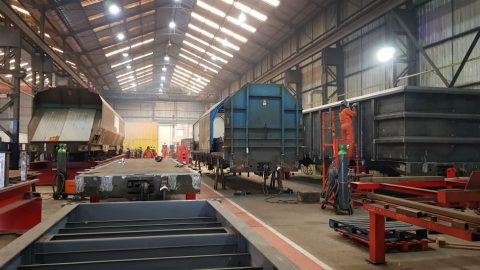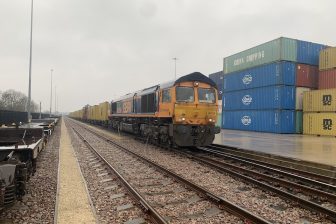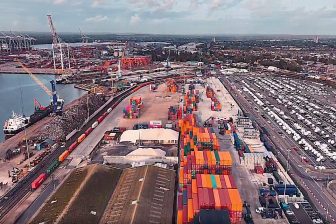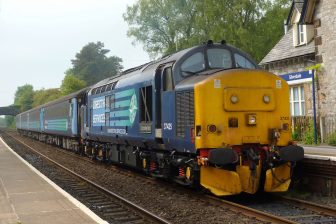
Ecofret intermodal innovation in the UK Midlands
A radical redesign of the Ecofret intermodal workhorse will double capacity and make rail freight more competitive. It is all down to the last independent freight wagon manufacturer in the UK; WH Davis is preparing for testing of their prototype Ecofret 2, a radical update of the primary model, seen all over the network.
An engineering firm with its roots in 1908 Edwardian England and the manufacture of rolling stock that is still recognisable 112 years later, WH Davis is certainly up to the task. “The Ecofret 2 will have a new bogie fitted, developed and manufactured by Axiom, Wabtec’s UK-based specialist manufacturers”, says Les Bryant, the Group Business Development Director. “They will be fitted with spigots on each of the 3 decks to allow 2 x 20’ containers to be loaded.”
Infrastructure restraints
It is that design capability to handle two twenty-foot containers that is set to open up new intermodal markets, and make rail freight more attractive, especially within the more constricted environment of the UK rail network. With much of the infrastructure recognisable to the athletes who competed at White City Stadium, the challenge is to make rolling stock that can cope with those restraints, and still be competitive, now that the Olympics have moved to the other side of London.
Bryant says his team are under starters orders and geared up for production at their Mansfield workshops in the English Midlands.“WH Davis are carrying out the design of the wagon. We will be manufacturing the decks and assembling the wagons with the bogies being delivered from Axiom, before carrying out final tests for delivery.”
Maintenance arm
The business also has a busy maintenance arm, Davis Wagon Services, head-quartered from the east coast port of Immingham. “They maintain wagons across the UK for customers such as VTG, Touax, Ermerwa, GBRf”, says Bryant. He notes that they also look after the specialist biomass wagons, developed by WH Davis, to serve the massive Drax power station in Yorkshire, which has been progressively repurposed from its coal-burning inception in 1974.
Many of the original hopper wagons serving that power station and the rest of the now decommissioned coal industry in the UK have been conceived and redesigned by WH Davis, and are serving new customers. “We have converted over 300 coal hoppers of various types to date and are in the process of converting another 150”, says Bryant. The company is also playing a leading role in nuclear fuel movements, having delivered the unique nuclear flask wagons for the UK’s decommissioning agency.
New phase
Ecofret 2 intermodals won’t be carrying anything radioactive, but they will be in testing from this Spring, with delivery to customers from the Autumn. Bryant won’t speculate on what cargo they will be carrying, but he is confident that, whatever the market demands in future, WH Davis can complete, and end up among the medal winners.




